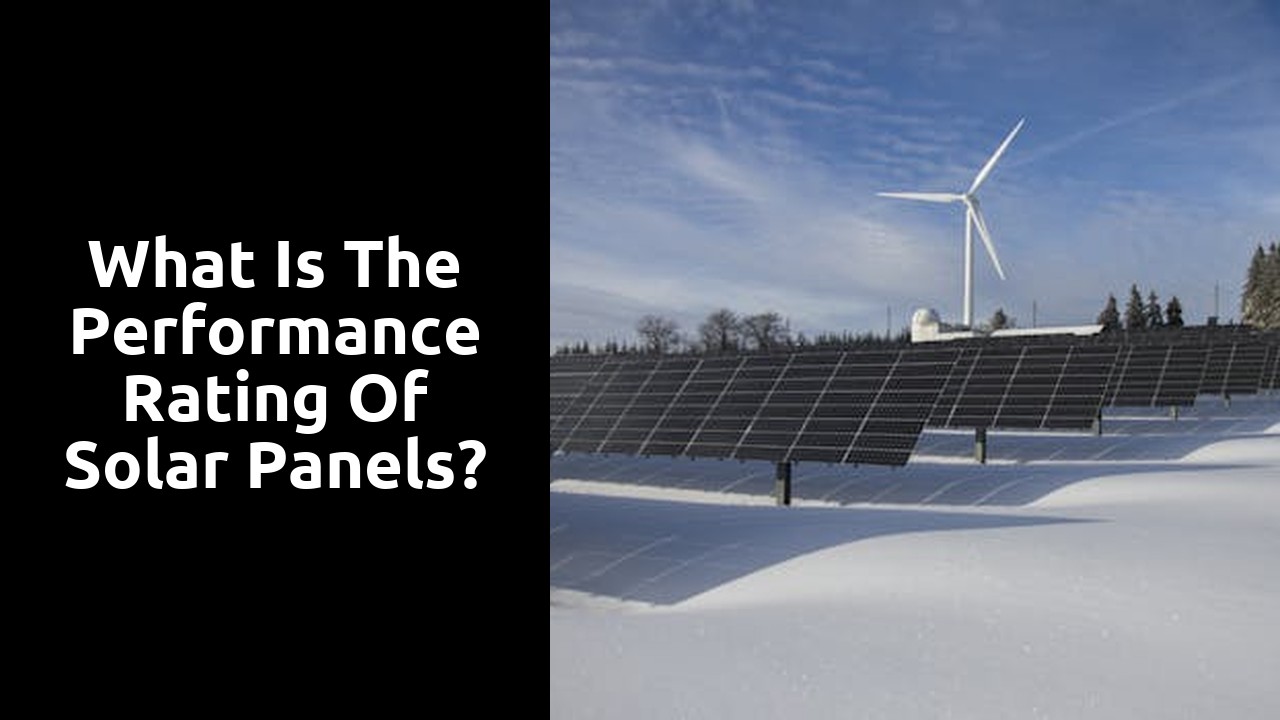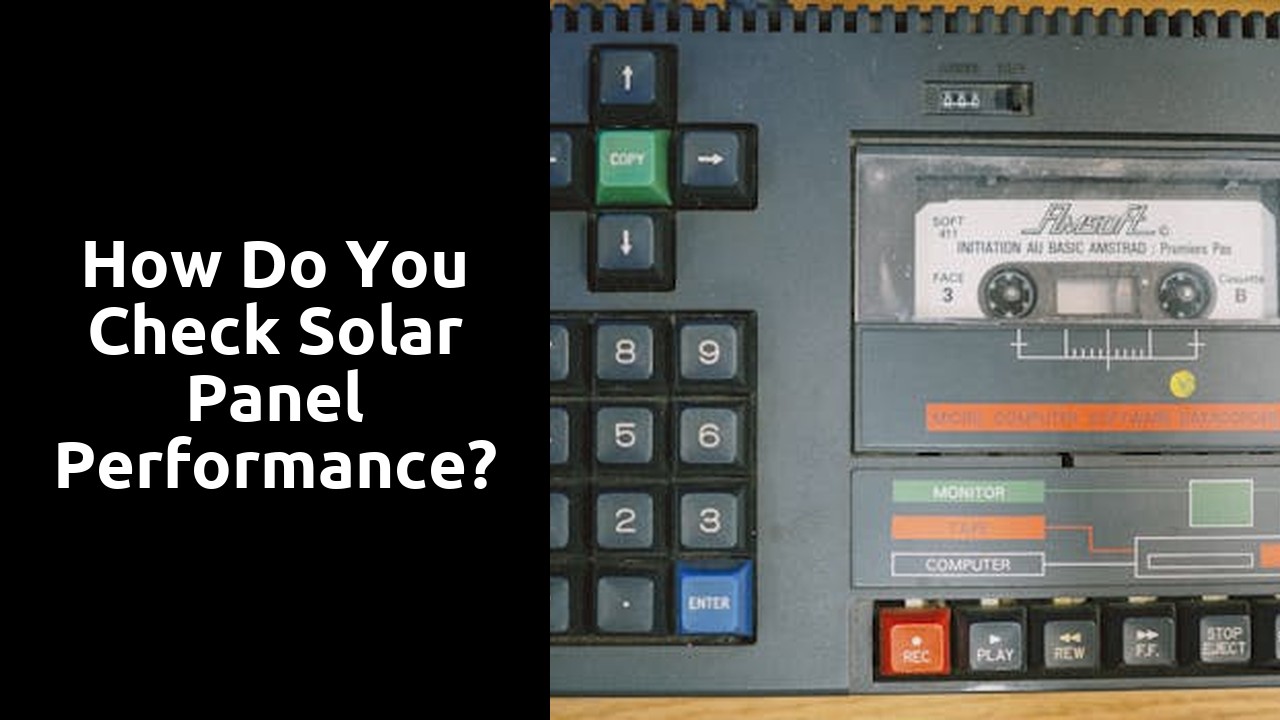
Maximizing Solar Panel Efficiency
To ensure optimal efficiency of solar panels, it is imperative to conduct regular maintenance checks and cleaning. Dirt, dust, and debris can accumulate on the surface of the panels, hindering sunlight absorption and reducing performance. By scheduling routine maintenance, such as cleaning the panels, inspecting for any damages, and monitoring the overall system, solar panel owners can maximise energy production and extend the lifespan of the system.
In addition to regular maintenance, another key aspect in maximising solar panel efficiency is conducting Solar Panel System Performance Auditing. These audits involve analysing the system's performance data, such as energy output and sunlight absorption, to identify any areas for improvement. By identifying and addressing inefficiencies through performance auditing, solar panel owners can fine-tune their systems for optimal productivity and energy generation.
How can regular maintenance improve solar panel performance?
To optimise the efficiency and longevity of solar panels, regular maintenance is imperative. Maintaining a clean surface free from dust, dirt, and debris allows for maximum sunlight absorption. Through routine inspection, any potential issues can be detected early, thereby preventing any significant damage that may impact the performance of the solar panel system. Consequently, this proactive approach to maintenance contributes to sustaining peak efficiency levels over the lifespan of the solar panels.
Moreover, conducting regular Solar Panel System Performance Auditing ensures that the system is operating at its highest capacity. This auditing involves assessing the overall functionality of the system, identifying any areas of improvement, and implementing necessary modifications to enhance performance. By consistently monitoring and fine-tuning the operation of solar panels, it is possible to achieve optimal output and greater energy savings in the long run.
Solar Panel Efficiency Trends
Solar photovoltaic (PV) technology has been steadily improving in efficiency over the years. Through advancements in research and innovation, solar panels have seen increased performance levels, making them more effective in converting sunlight into usable electricity. This progress has been pivotal in driving the adoption and widespread use of solar energy as a renewable source of power. Among the key factors influencing solar panel efficiency trends are technological developments, material enhancements, and manufacturing processes, all aimed at enhancing the overall performance of solar panels.
As the solar industry evolves, the focus on enhancing solar panel efficiency is paramount. This emphasis has led to the introduction of various initiatives such as Solar Panel System Performance Auditing, which helps assess and improve the effectiveness of solar PV systems. By monitoring and evaluating the performance of solar panels, stakeholders can identify areas for improvement, address issues that may impact efficiency, and ultimately optimise the overall output of solar energy systems. This commitment to enhancing solar panel efficiency trends not only benefits individual system owners but also contributes to the collective growth of solar energy technology worldwide.
What advancements are being made in solar panel technology?
Advancements in solar panel technology are constantly evolving, driving improvements in efficiency and performance. One key area of innovation is the development of higher efficiency photovoltaic cells. Researchers are tirelessly working to enhance the conversion efficiency of solar panels to harness more sunlight and produce greater electricity output. Materials science is also playing a pivotal role, with the introduction of new materials that are more durable and conductive, improving the overall longevity and efficiency of solar panels. Additionally, advancements in smart technology integration are enhancing the monitoring and control capabilities of solar panel systems, allowing for more precise tracking of energy production and consumption. These technological advancements are revolutionising the industry, paving the way for more sustainable and efficient energy generation.
Another significant advancement in solar panel technology is the implementation of Solar Panel System Performance Auditing. This innovative approach involves regular monitoring and assessment of solar panel systems to identify any inefficiencies or issues that may be impacting performance. By conducting systematic audits, solar panel owners can proactively address maintenance needs, optimize system performance, and extend the lifespan of their solar panels. This proactive approach not only maximises energy production but also ensures the long-term reliability and effectiveness of solar panel systems. In essence, the ongoing advancements in solar panel technology, coupled with the adoption of Solar Panel System Performance Auditing, are driving the industry towards a more sustainable and efficient future.
Comparing Solar Panel Performance
When comparing solar panels based on performance, it is crucial to consider various factors that impact their efficiency. One key aspect to evaluate is the power output of the solar panels, which directly correlates to their performance. By assessing the power output under standard test conditions, consumers can determine the energy generation capability of the solar panels and make an informed decision based on their specific requirements.
Another critical factor to consider when comparing solar panels is their degradation rate over time. Solar panels undergo a natural degradation process, leading to a gradual decline in performance. Regular maintenance and upkeep can mitigate this degradation and sustain optimal performance levels over an extended period. It is recommended to conduct Solar Panel System Performance Auditing periodically to ensure that the panels are functioning efficiently and to address any issues that may arise promptly.
How do different types of solar panels stack up in terms of efficiency?
When comparing different types of solar panels in terms of efficiency, various factors come into play that can affect the overall performance of the system. One key aspect to consider is the type of material used in the construction of the panels. For instance, monocrystalline panels are known for their higher efficiency levels compared to polycrystalline panels. This is due to the way the silicon cells are structured, allowing monocrystalline panels to convert sunlight into electricity more effectively.
In addition to the material type, the size and design of the solar panels can also impact their efficiency. Larger panels with a higher wattage output tend to generate more electricity, which can be beneficial for homeowners looking to maximise their solar panel system performance. Regular maintenance and cleaning of the panels are crucial in ensuring optimal efficiency levels, as dirt and debris can accumulate on the surface and hinder sunlight absorption. Conducting Solar Panel System Performance Auditing is vital to identify any issues and address them promptly to maintain peak efficiency levels.
FAQS
What is the performance rating of solar panels?
The performance rating of solar panels is typically measured by their efficiency in converting sunlight into usable electricity. This is expressed as a percentage, indicating how much of the sunlight that hits the panels is converted into electricity.
How do I know the efficiency of a solar panel?
The efficiency of a solar panel is usually provided by the manufacturer and can be found in the panel's specifications. It is important to consider the efficiency rating when choosing solar panels for a system, as higher efficiency panels will generate more electricity for the same amount of sunlight.
Can the performance rating of solar panels vary?
Yes, the performance rating of solar panels can vary depending on factors such as the quality of the panel, its age, maintenance, and environmental conditions. Regular maintenance and cleaning can help improve and maintain the performance rating of solar panels.
How do different types of solar panels compare in terms of performance?
Different types of solar panels, such as monocrystalline, polycrystalline, and thin-film panels, have varying performance ratings. Monocrystalline panels are known for their high efficiency, while polycrystalline panels are more cost-effective. Thin-film panels are lightweight and flexible but may have lower efficiency compared to crystalline panels.
What advancements are being made in solar panel technology to improve performance ratings?
Technological advancements in solar panel technology are ongoing to improve performance ratings. Innovations such as bifacial panels, PERC technology, and improved anti-reflective coatings aim to boost efficiency and overall performance of solar panels.
How can regular maintenance improve the performance rating of solar panels?
Regular maintenance, such as cleaning the panels, checking for shading issues, and ensuring proper ventilation, can help improve the performance rating of solar panels. By keeping the panels clean and well-maintained, you can ensure optimal sunlight absorption and electricity generation.
